Thursday June 28.6.2001
Dr M must upgrade his PC
James Wong Wing On
10:17am, Thu: opinion When Dr Mahathir Mohamad finally
became the fourth Prime Minister of Malaysia in July 1981,
there were not many personal computers around. My father was
still using an abacus to sort out the income and expenditure
of our family's coffee shop, although my sisters had asked
him to use a calculator instead.
A year later, when I went to Melbourne to pursue my
matriculation, I was introduced to the most advanced
computer of that time by a roommate. That 'machine' housed
in the science faculty was huge and bulky. On its screen
there were only two colours - black and white.
Yet, everybody was so excited and thrilled by it - the 'most
modern' calculating device on earth. Then, in an English
newspaper (July 16, 1982) which my father had sent from
Malaysia, I saw a black and white photograph of our new
prime minister working in his office with a personal
computer - which was much smaller than the one in the
science faculty.
Years later, I was told that the personal computer used by
Mahathir probably belonged to the PC 386 generation. Since
then, generation after generation of personal computers have
come and gone. The screens today are definitely a lot more
colourful as well.
And thanks to Mahathir, we have now built the Multimedia
Super Corridor (MSC) and the largest paperless office in the
world.
The setup
However, it seems that the premier's views, notions and
observations of the Chinese community are still frozen in
the era of that PC <386 .that=""> system operates on a very
simple programme and logic.
'MCA/Gerakan
Dong Jiao Zong (the United Chinese Schools Committees
Association and the United Chinese Schools Teachers'
Association) and Suqui are the new variables in the
configuration.
The programme's setup is as follows: MCA and Gerakan are
'good and moderate Chinese' on one pole whereas the Chinese
with or supporting Dong Jiao Zong and DAP are 'bad and
extremist guys'- on the other.
Meanwhile, the Chinese newspapers play the role of the
balancer. A pivotal role capable of swinging the political
mood of Chinese-educated voters.
Explained in this paradigm, the electoral defeat of Barisan
Nasional (BN) in Lunas can only be attributed to DAP, Dong
Jiao Zong and Suqiu working together with the Chinese
newspapers which had set an 'anti-government agenda'.
Re-booting perceptions
Let us upgrade Mahathir's PC (perception of Chinese) system.
In the Lunas by-election, it was Saiffudin Nasution, a
candidate from Keadilan who benefitted from the swing of the
Chinese voters to the opposition.
The Chinese newspapers, on the whole, had maintained
political neutrality and were balanced both in reporting and
presentation of opinions.
In balance, readers of the Chinese dailies saw DAP being
criticised heavily by the MCA/Gerakan leaders as well as
supporters of the Barisan Alternatif Front.
Also, while Dong Jiao Zong maintained its organisational
neutrality in the by-election, many of its individual
supporters were mobilised from all over the country to
support the Malay candidate from Keadilan.
In fact, many young Chinese opposition supporters had argued
in favour of a candidate from Keadilan and not for a
non-Malay from DAP.
Their views, that of DAP, as well as the opinions of Umno,
MCA and Gerakan supporting the MIC candidate were given
equal and fair coverage by the Chinese newspapers.
True, the 'insensitive' remarks by the prime minister
against Suqiu and other issues affecting the Chinese
community were debated during the campaigns in Lunas. But
let us not forget that Malay oppositionists had also
empathised with their Chinese comrades and that the Chinese
themselves, especially the younger ones, had other reasons
to vote against the BN.
Issues such as the black eye of Anwar Ibrahim, the
'injustices' done to him and his family, the economic and
financial conditions of the country, judicial independence
and police performance, etc had been raised.
Pentium reality
Hence, the Pentium reality of Chinese politics is more
colourful than the black-and-white PC 386 version of
Mahathir's paradigm, which might have been valid and
operational before the 1990s but not today.
In fact, an increasing number of Chinese youths who are
pro-opposition are joining Keadilan. Even MCA grass-roots
leaders, like former Negeri Sembilan state assemblyman Yap
Ann Peng, had found Keadilan attractive enough to cross over
during the Teluk Kemang by-election.
Others are Australian-trained lawyer Cheah Kah Peng in
Penang, Taiwan graduates - Low Chee Cheong in Kuala Lumpur
and Diong Chi Tzuoh in Johore - and
graduated with a medical degree from the Universiti Malaya
(UM) and later obtained a masters medical degree from
Universiti Kebangsaan Malaysia (UKM).
Older Chinese like former pastor and ex-secretary-general of
the Christian Federation of Malaysia, Goh Keat Peng and his
wife as well as businessman Ng Lum Yong, had co-founded
Adil, ad later Keadilan, at the height of the reformasi
movement on April 4, 1999.
DAP too is undergoing a generational shift. Its Youth chief
and practising lawyer, Teng Chang Khim, who is also a
Selangor state assemblyperson, can speak and write Bahasa
Malaysia with a heigh degree of fluency.
The party's Member of Parliament (MP) for Batu Gajah, Fong
Po Kuan is a former student of the Ipoh Methodist Girls
School and a law graduate from the International Islamic
University Malaysia (IIUM).While its former public services
union chief, Ahmad Nor, is still a top leader in the party.
Better connections
So, what is this so-called 'Chinese chauvinism' that
Mahathir and Umno strategists are talking about?
What about the other Chinese associations? Well, there are
MCA, DAP, Keadilan and Gerakan members and supporters there
as well.
Gerakan leaders like Dr Koh Tsu Koon who is the Chief
Minister of Penang and Kerk Choo Ting, party deputy
president, were leaders of Dong Jiao Zong before they joined
Gerakan and the Barisan Nasional in 1982.
As to whether the Chinese newspapers are 'chauvinistic' or
not, it is perhaps best for Mahathir, who does not
understand Mandarin, to frequently consult more independent,
reliable, trustworthy and disinterested sources like Said
Zahari, who reads Mandarin exceptionally well.
Th premier should do this, instead of relying merely on
reports made by those with vested interests like MCA and
Gerakan ministers in the Cabinet.
JAMES WONG WING ON, is a former Member of Parliament
(1990-1995) and a former columnist for the Sin Chew Jit Poh
Chinese daily. He read political science and economics at
the Monash University in Melbourne, Australia. While in Sin
Chew, he and a team of journalists won the top awards of
Malaysian Press Institute (MPI) for 1998 and 1999.
Last modified:Thursday June 28, 10:22 am
Subscribe to:
Post Comments (Atom)




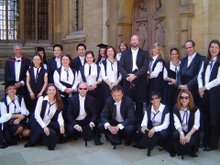

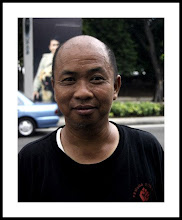


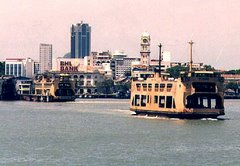
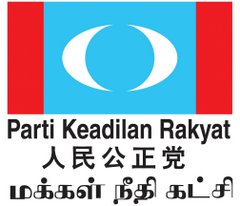
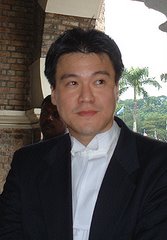
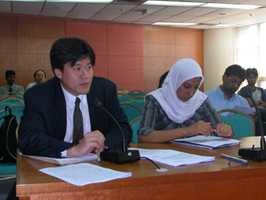
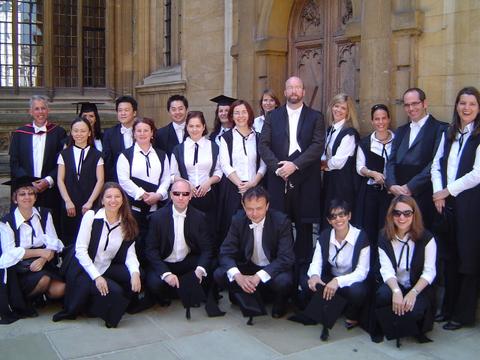

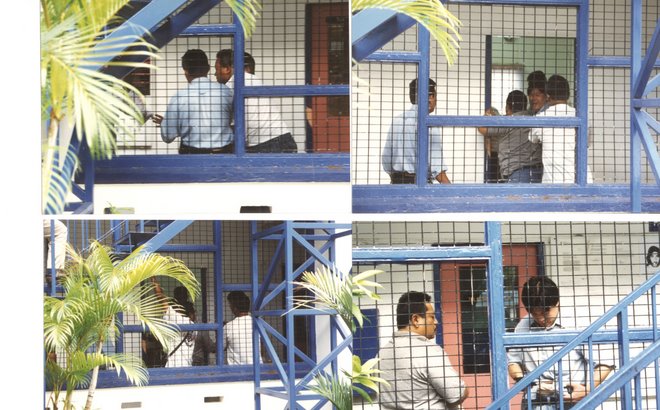
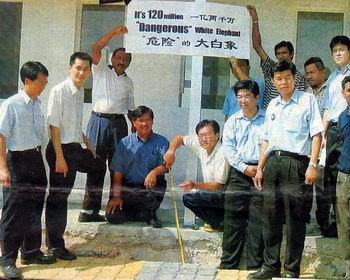
No comments:
Post a Comment